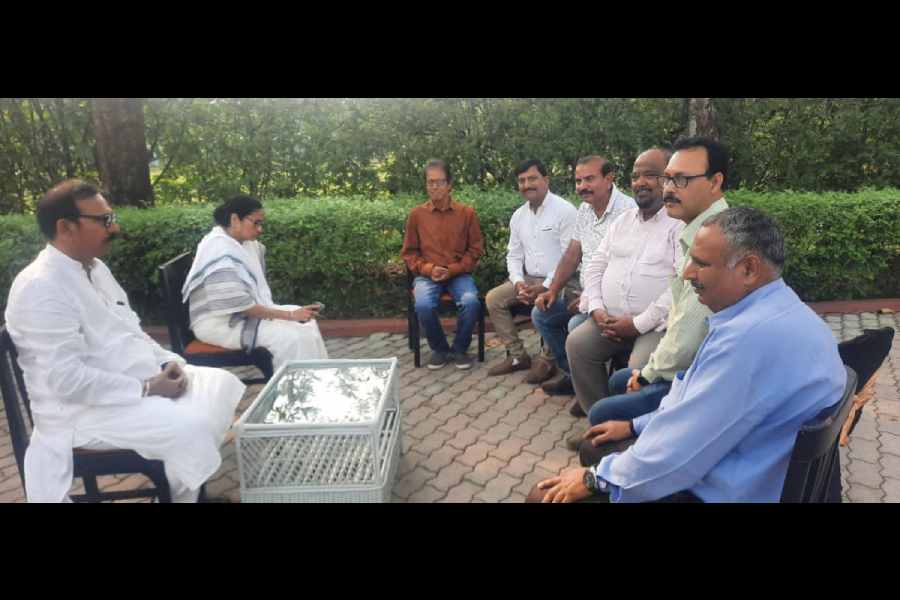The state administration has decided to take up the fresh “livelihood crisis” affecting small tea growers with central officials after chief minister Mamata Banerjee met with a delegation of growers in Jalpaiguri on Wednesday.
Since Monday, acting on a central order, bought-leaf factories or tea processing units that buy tea from small tea growers stopped unless the growers provided lab-certified chemical-free leaves.
Mamata met the team at a private resort in Chalsa, Jalpaiguri, where she has been staying since Monday.
“They have apprised me about their problem. I have asked them to continue their work at the tea plantations. Also, the bought-leaf factories should resume buying teas from them. If there is any issue, the administration will sort it out. In all, 10 lakh people here are in crisis and this has to be resolved,” said the chief minister, after meeting the delegation.
Bought-leaf factories (BLFs) or standalone tea processing units stopped buying tea leaves from growers following a decision by the Tea Board in consultation with the Food & Safety Standards Authority of India (FSSAI) that tests of tea samples must be regularly done to confirm that the product doesn’t have any chemical or fertiliser residues banned in the tea sector.
If such chemicals are found in any sample, the entire lot of tea has to be destroyed.
Unlike the tea estates, as the BLFs don’t have tea plantations, their argument has been that they cannot assess whether small growers, who supply tea leaves to them, use banned chemicals in the production process.
“This is why representatives of the BLFs said that from April 1, they will buy tea leaves only if each batch of tea leaves carries a report issued by an FSSAI-certified lab that it doesn’t have banned chemicals. It is not possible for small growers to get samples of tea leaves tested every time,” said a senior tea planter in Siliguri.
BLF owners said they stopped buying tea leaves as the Tea Board said clearly that they would be responsible for the presence of banned chemicals in any sample collected from their factories, irrespective of where they got the tea leaves.
In such a situation, the growers, who could not find buyers, met the chief minister on Wednesday.
“We mentioned that thousands of workers in our plantations will also be jobless. We are thankful that the chief minister listened to us and said she would look into it,” said Bijoygopal Chakraborty, president of the Confederation of Indian Small Tea Growers who led the delegation.
Sources in the administration said the state health secretary will take up the issue with the Tea Board and FSSAI. Also, district magistrates of the tea-producing districts have been asked to get in touch with the BLFs so that they resume buying tea leaves from growers.
“There are plans to conduct training programmes for growers so that they can be taught about safe cultivation practices through the state agricultural department. Also, an insurance scheme for the growers can be floated in due course,” said a source.
Mamata added: “Earlier, there used to be representatives in the Tea Board and other organisations like ports and DVC (Damodar Valley Corporation) from the state. But now, we are no longer included in these bodies.”
Later in the day, the Tea Board in a letter said it was taking steps to address the issue. “A meeting has been convened at the district magistrate’s office in Jalpaiguri on Thursday with representatives of small tea growers and BLFs, district administration and the state labour officials,” said a source.
Tea estate
The Sylee tea estate in Malbazar block, Jalpaiguri, shut since February 5, will reopen on Thursday. The decision was taken at a tripartite meeting at the deputy labour commissioner’s office on Wednesday.











